By Belina Budini
Part Four
Memorie.al / A letter can turn your life around and this is what happened to Koço Tashko, the protagonist of Albanian communism in the early years, a Harvard graduate, then seduced by communist ideas and the sucker of one of the noble families of Korça at the time, the Tashkos. It is about a letter that Koço Tashko addressed to the Comintern (Communist International) but that never reached the Comintern. Destined to inform this organization that united and led all the communist parties of the world and that had its headquarters in Moscow, it ended up where it shouldn’t have. In the hands of Enver Hoxha and Miladin Popovic. Fatality.
Continued from the previous issue
Koço Tashko’s letter to the Comintern
The people are not with us communists –
I was one of those in charge of dealing with the nationalists and until April 1942, even until September when the Peza conference was held. I did not have any positive results with the nationalists.
The nationalists did not have confidence in the results of the Red Army’s winter offensive; they expected the German offensive, were discouraged by the lack of a Second Front and the passivity of the Allies of the Soviet Union, did not have a conviction that the Party would be able to resist the offensive of Mustafa Kruja, which was expected, they protested against the “left” slogans of the Central Committee (on the issue of Kosovo in particular) and demanded the liquidation of the Party, i.e., its merger into a nationalist organization.
They also insisted that it was not the time for actions. Relations with them, therefore, were very difficult, but the more difficult the more demanding were the demands of comrade Miladin. At the time when Shyqyri Peza was making the compromise, when we did not have a single partisan detachment, comrade Miladin asked me to talk to the nationalists about the Grand Headquarters, about the formation of volunteer partisan detachments, about the uniform, about the new flag, about political commissars and so on.
As a disciplined person, I spoke, but it was enough to open my mouth for the conversation to end. We could not be satisfied with little; we wanted to squeeze water out of a stone. At the beginning of April, Mustafa Kruja’s repressive laws were issued. The demonstrations of April 7 (the anniversary of the occupation of Albania) remained without people; they were simply demonstrations of cadres.
After April 7, every action and every demonstration was simply of cadres and old sympathizers, we lost a lot in killed, hanged and imprisoned. How many have been replaced? I don’t know, but I don’t believe we have recruited a number that is 50% of the losses.
In mid-April, the comrades in charge of working with the nationalists gathered together with Comrade Miladin and Comrade Qemal Stafa. At this meeting, I made my criticisms and described the line of the Central Committee as being far ahead of the people, a line for the social revolution and not for the National Liberation War.
And to highlight my point of view (and not to demand the liquidation of the Party, as Comrade Miladin remembers interpreting it after 6 months) I said: “Better a popular National Liberation movement, where the communists are a faction, than a Communist Party without the crowds and with a line that cannot mobilize the crowds.”
We should not fear (as Comrade Miladin has expressed) that our slogans will become the same as those of the revolutionary nationalists, that our language is distinguished from theirs by its formulation and interpretation, by means of propaganda, and we are distinguished from them by our initiative and activity, by our sacrifices and sincerity, by our ability to give what we possess (later and more), while the nationalists always give less than they possess.
We should not be afraid that they will turn against us after the victory, but we must prevent them from turning against us, from joining the “nationalism” of Mustafa Kruja before the victory and falling to us, knowing that they will find us isolated from the people and, perhaps, with the people against us.
If the nationalists turn against us, and there is no doubt that a part of them will turn against us, we will be able to stand up to them only if we have been able to mobilize the masses, with a line that can mobilize them, while always preserving our independence, our communist face, by unmasking them in time before the masses.
We are able to take the crowds, because we are organized and monolithic, while they are isolated grains and in opposition to each other. They have in their strength only the old prestige, based on their past, and we can take this away from them today with our initiative, in a national-liberation direction.
We will keep the Soviet front before the eyes of the people, but we will not forget that our front is here in Albania. Since this meeting, comrade Miladin has tried to isolate me from my comrades and from the nationalists. On June 17, a meeting of the nationalists was to be held in Tirana, who had requested Party delegates.
That meeting was not held, because the nationalists predicted the fall of Sevastopol and the start of the German offensive. I gave the Party an analysis of the nationalists, whom I divided into four groups: 1-The group of compromisers, with whom we had wasted time; 2-The group of those who have been directly attacked by fascism: Muharrem Bajraktari, Bazi i Canit, Myslym Peza, Myftar Kaloshi, those to whom the Central Committee did not want to mention the armed war with fascism.
Haxhi Lleshi and perhaps Shefqet Vërlaci or some of his representatives and some second-rate nationalists, who are very close to the people and who have shown sympathy for the Party; 3 – The group of the Franciscans of Shkodra, who have shown themselves to be anti-fascist and have clashed with the Jesuits as well as some Orthodox religious who have clashed with Unity; 4 – The group of Mehdi Frashëri, who is not against the action, but is very old and, after his internment, his group has fallen into the hands of other groups.
I proposed to the Party to hold a conference in Peza, having as a basis group no. 2. To form a temporary National-Liberation Council, however few nationalist delegates may go to the conference. The immediate purpose of this council will be to expand the circle of nationalists, by presenting them with a “fait accompli” and, with its proclamation, to give a shock to the success that Mustafa Kruja had in isolating the communists from the nationalists, in order to more easily eliminate the communists.
The conference was held on September 16. Delegates from all the groups I mentioned participated, but the main base was group no. 2. The independence of the Party and immediate partial action (not frontal) were accepted. The temporary council was formed and the creation of local councils was accepted. The General Council included very valuable personalities of the action and at its first meeting it assigned actions for each partisan or volunteer unit.
Three factors softened the nationalists to accept our main points: The presence and positive attitude of the elements of the action of group no. 2 (Bazi i Canit, Myslimi, Haxhi Lleshi); the failure of the German offensive, the activity of the Skrapar partisan detachments and their first successes, which coincided exactly in the month when the Conference was being held, and the failure of Mustafa Kruja’s offensive against the Party.
A day before the Conference, at the meeting of the communist delegates, comrade Miladin again showed his leftism, showed his desire to keep the nationalists in touch with the party, as individuals, so that the nationalists could not take on a more or less organized political personality and, “tomorrow, betray us like Mihailovich”.
The goal is good, except that the medicine kills the client, because it prevents rapprochement with the nationalists and perpetuates the isolation of the Party. With that aim, comrade Miladin proposes that the conference should not have the right to create the Provisional National Liberation Council. “This council should emerge from the war” and not from the Conference. This was opposed by everyone except one member of the Central Committee.
We cannot take away the right of the nationalists to form a council, they can form one even without us, if we become stubborn, because they are united and do not want to leave empty-handed. Even at the Conference, the first and only thing they asked for was the creation of the Council.
When he was forced to accept the creation of the Council, comrade Miladin makes another proposal, with the same purpose: that the Council should not have the right, until the Great Headquarters is formed, which will emerge from the war, to maintain relations with the partisan and volunteer detachments, that is, the volunteer detachments should not be connected through the Council, but through our political commissars – through the Albanian Communist Party.
The meeting did not accept this proposal either, because if we proposed it to the nationalists, they would immediately remember that we were not sincere and wanted to have them like horses with the capital in our hand.
Then comrade Miladin excludes me from every function of the conference, except that of delegate. I am excluded as one of the rapporteurs from the presidium and from the General Council. In short, I am excluded from working with the nationalists. The dependence of the internal front on the external front and the underestimation of the forces of the external enemy.
With the communiqué of February 22, 1942 of the Tirana Regional Committee (the political secretary of the Tirana Regional Committee at that time was Enver Hoxha, (editorial note), the main slogan was: “Long lives the Red Army, which will liberate us until August”. This was the mentality of the forum comrades as well as of the comrades in the line: “The Red Army will liberate us”.
As a result, the internal front became subordinate to the Soviet Front, internal problems were left aside. We did not need to worry about the problem of Kosovo, about Albanian history, about the nationalist propaganda of Mustafa Kruja, about his anti-communist propaganda and maneuvers, about Myslymi, about Bazin Canit, Muharrem Bajraktari, Mehdi Frashëri, about national songs, etc.
In short, we did not need to worry about national liberation; only two of the groups (the Communist Group of Shkodra and Youth Group. Editorial Note) united in the party had been vocal and called national liberation a betrayal by the third group (Korça Group) and reported it to the police as a traitor. Past mistakes were therefore encouraged, instead of being ruthlessly suppressed, and the resolution of the First Conference was superficially passed over.
Not only does liberation come from outside, but it also comes quickly, very quickly and therefore very easily! This tone is found in all proclamations, tracts and communiqués: The Hitlerite army is finished, it gave up its spirit after the Soviet winter offensive, all that remains is to blow them up and let Hitler and Mussolini fall, crushed. Comrade Stalin truly said that the enemy is still strong and will throw himself at us again like a beast and, like a wounded beast, will do us more harm.
But we do not like this saying, so it went in one ear and came out of the other ear. Comrade Miladin tells me from April that the German army cannot make any further progress; the Soviet offensive has begun and will continue. In the Tirana communiqué (June 3-5), the main slogan became this: “1942 will be the year of victory”.
The next comrades embellished it in their propaganda. There are only 5 or 6 months left, there is nothing left but to count the months. There is no correction from the Central Committee. As a result, we do not have time to rack our brains to mobilize the Albanian people, because this people, whether they like it or not, will come with us when the Red Army enters Albania. So, down with the national songs, long live the songs of the proletarian revolution!
In August, the Party publications stop mentioning the Eastern Front and the international situation. In some disappointment, defeatism; the illegals seek to be legalized. Our war becomes a war of cadres without measures.
Comrade Miladin had me charged with comrade Qemal Stafa, as agitprop. My views with Qemal’s were even more distant than with those of Miladin. Qemal was in both Central Committees (Youth and Party), I had no opportunity to defend my views. This situation continued until March, then I was automatically excluded./ Memorie.al




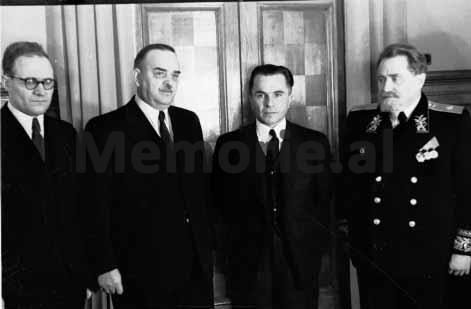
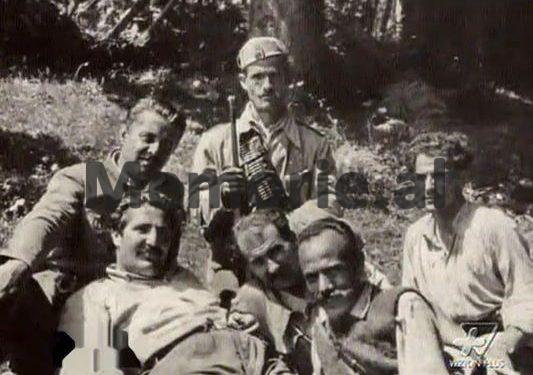

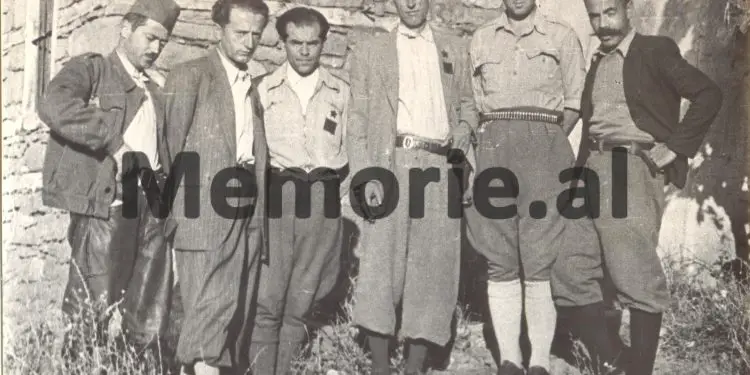
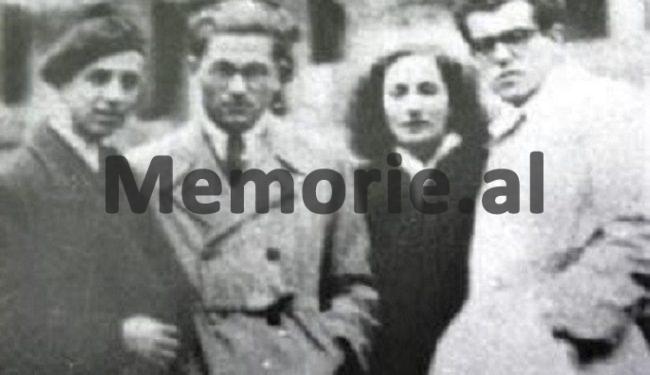
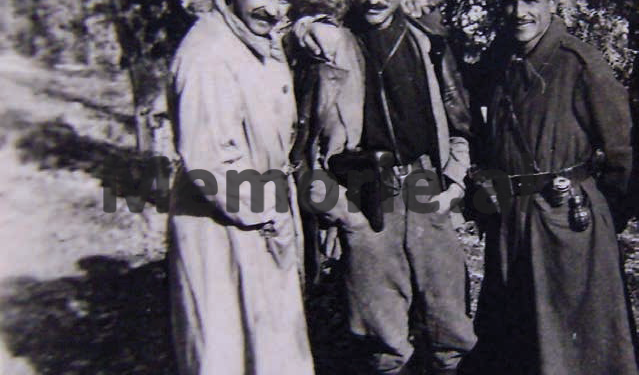
![“The ensemble, led by saxophonist M. Murthi, violinist M. Tare, [with] S. Reka on accordion and piano, [and] saxophonist S. Selmani, were…”/ The unknown history of the “Dajti” orchestra during the communist regime.](https://memorie.al/wp-content/uploads/2026/02/admin-ajax-3-350x250.jpg)
![“In an attempt to rescue one another, 10 workers were poisoned, but besides the brigadier, [another] 6 also died…”/ The secret document of June 11, 1979, is revealed, regarding the deaths of 6 employees at the Metallurgy Plant.](https://memorie.al/wp-content/uploads/2026/02/maxresdefault-350x250.jpg)




